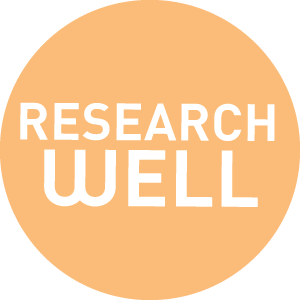ResearchWell seeks to increase HPV vaccines in college
What is the ResearchWell Pod?
Established in the spring of 2015, the mission of the ResearchWell pod is to support the research and evaluation needs of the Healthy Campus Initiative (HCI), HCI pods, and HCI-funded student projects. Towards this end, the ResearchWell Pod engages in various activities such as identifying campus-wide data sets that inform HCI policies and programs, exploring internal and external partnerships to conduct research, and guiding HCI pods and student groups on the process evaluation of their events/programs. Aligned with HCI’s vision of making UCLA the healthiest college campus in the nation, the ResearchWell Pod actively conducts research on issues related to the health and well-being of college students, including HPV.
What is HPV?
Human papillomavirus (HPV) is a sexually transmitted virus that can cause various cancers and diseases in both males and females. The virus is transmitted through intercourse and other forms of genital contact, but often displays no signs or symptoms. However, it can have severe consequences for men and women, including genital warts and anal cancer in both men and women, as well as cervical, vulvar, and vaginal cancers in women, and penile cancer in men. Nearly 1 in 4 people in the United States are infected with HPV and there are approximately 14 million new HPV infections each year. Furthermore, in 2010 the economic burden of preventing and treating HPV-related diseases was estimated at an annual direct medical cost of $8 billion.
The HPV Vaccine
While HPV might sound scary, the risk of acquiring HPV is greatly reduced by receipt of the HPV vaccine, which was first introduced in 2006. Extensive clinical trials provide incontrovertible evidence that the vaccine “provides close to 100% protection against cervical precancers and genital warts.” Since the vaccine’s introduction in 2006, the United States has seen a 64% reduction in HPV infections in teen girls.
The CDC recommends that all children receive the vaccine between the ages of 11-12, before they engage in any kind of sexual activity and could potentially be exposed to the virus. However, there are many barriers to the HPV immunization of adolescents, including the following:
- Failure of doctors to recommend the vaccine
- Parents/doctors believing that boys do not need to receive the vaccine (which is false!)
- Parents forgetting that children need multiple doses of the vaccine
- Parental concerns about the vaccine’s effect on their children’s sexual behavior
- Other common misconceptions, including that only those with multiple partners become infected (false!), those who aren’t sexually active don’t need the vaccine (false!), or that the vaccine can make pre-existing HPV infections worse (false!)
If an individual did not receive the HPV vaccine as an adolescent, it is not too late to still become vaccinated! The CDC recommends the vaccine up until the age of 26 for young women and until the age of 21 for young men that did not receive it as a child.
Getting Vaccinated in College
For those that were not vaccinated during adolescence, college is a great opportunity to receive the HPV vaccine. Because of college students’ increased likelihood for sexual activity and ability to make their own medical decisions, college is the ideal time and place to promote the vaccine. Furthermore, many students have health insurance under university-mandated programs or through their parents and/or have access to nearby university clinics where they can get the vaccine. Despite these factors, vaccination rates remain low among young adults. In 2014, only 44.8% of female 19-21 year olds and 13.3% of male 19-21 year olds had been vaccinated against HPV.
ResearchWell’s HPV Study
To combat the low rates of vaccination amongst college students, the UCLA Center for Cancer Prevention and Control Research in partnership with the Research Well pod of the Healthy Campus Initiative is conducting a study to investigate current HPV-related activities on campus and promising and feasible strategies to increase access to and use of HPV vaccination services among UCLA students. The study aims to learn what undergraduate students know about HPV and the HPV vaccine, the intention to vaccinate and vaccination rates amongst students of various genders and racial/ethnic backgrounds, and what strategies are recommended by Ashe Center providers and student organizations to inform students about the benefits of the HPV vaccine.
The study is being conducted by a team including Roshan Bastani, PhD; Beth Glenn, PhD; Burt Cowgill, PhD, and Catherine Crespi, PhD. Furthermore, the study will be conducted in collaboration with the Healthy Campus Initiative, the UCLA Arthur Ashe Student Health and Wellness Center, the Student Health Advisory Committee (SHAC), and the Student Wellness Commission (SWC).
To accomplish the aims of the study, the researchers will take a mixed-methods approach, utilizing undergraduate focus groups, key informant interviews with health care providers, a review of Ashe Center data, and an online survey administered to undergraduate students. The study is incredibly innovative in its mixed-methods approach, but also in its location at UCLA and in its partnership with other key stakeholder groups. “Conducting this study at a large, public university offers a unique opportunity to assess HPV knowledge and vaccine coverage among a diverse group of young adults,” while the “partnership with key stakeholder groups from the outset will provide a strong foundation for future HPV vaccine promotion efforts”.
If you would like to learn more about the ResearchWell Pod and/or its HPV Study, please contact Dr. Burt Cowgill at bcowgill@ucla.edu.


